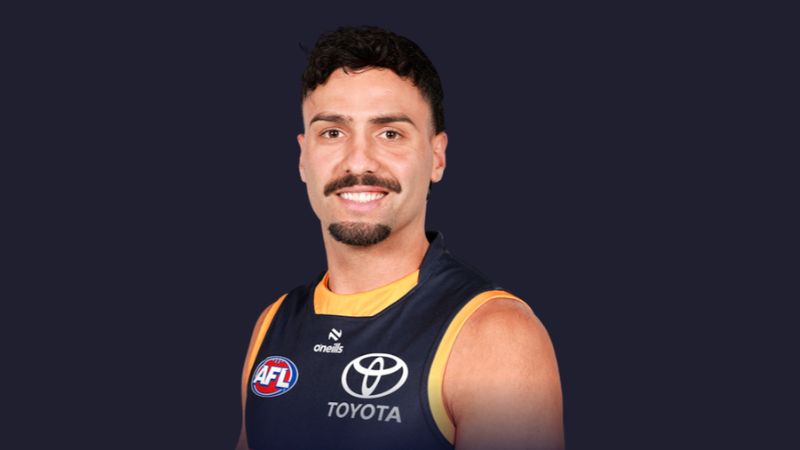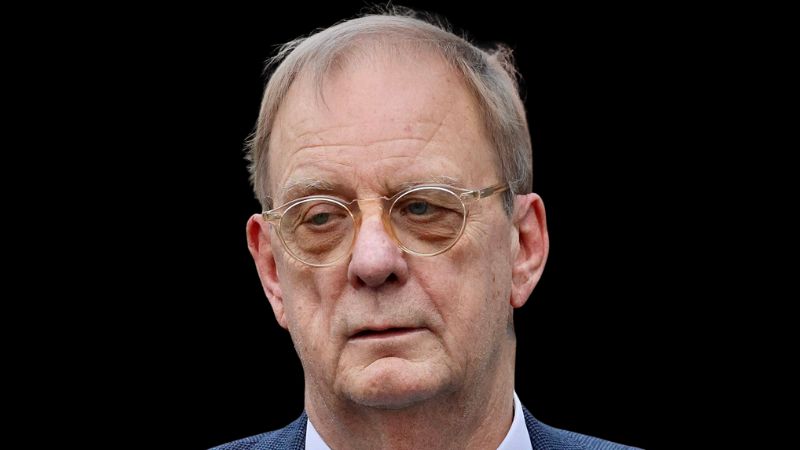OPINION
South Australian cultural commentator and broadcaster Peter Goers has used his regular column in News Corp mastheads to complain about Adelaide Crows star player Izak Rankine being suspended for four games after he directed a gay slur at another player.
Goers argues that by punishing players for using gay slurs it may actually be making it harder for closeted gay players to eventually come out.
He also suggests that the AFL’s is also punishing Rankine’s team mates by making him unavailable for the next four weeks. Rankine is the star player, and Adelaide are at the top of the leaderboard as they head to the finals. He adds that if Rankine had broken someone’s jaw he would have got a lighter penalty.

Umm, no. The AFL are not responsible for making Izak Rankine unavailable – Izak Rankine is.
Rankine knew that the use of such language leads to long suspensions. Following the suspensions of Jack Graham, Riak Andrew, Jeremy Finlayson, Lance Collard, and Wil Powell, not to mention the extensive campaigns about homophobia in sport that have been running since he was a teenager – he could hardly proclaim he is unaware.
Barry Hall, Tom Bugg and Andrew Gaff would probably argue against the suggestion that breaking someone’s jaw gets a lighter penalty. Hall got a 7 match suspension in 2008 for punching West Coast’s Brent Staker in the jaw in 2008. Bugg struck Sydney’s Callum Mills from behind in 2017 and was out of the game for six weeks, and Andrew Gaff copped an 8 week suspension, one of the longest in AFL history, when he punched Fremantle’s Andrew Brayshaw in 2018.
Goers lays out his argument by explaining that the phrase “faggot” has multiple meanings, including a collection of sticks bundles together, while it’s also the name for meatballs made from pork, offal, bacon and breadcrumbs.
“I’d love to eat some of those yummy faggots.” he proclaims.

He also shares a hilarious story from his days as a theatre director, recalling that he once directed a production of Camelot and during the dress rehearsal a hilarious moment about the F word came about.
Goers recalls that after the a scene where Sir Lancelot saves Guinevere from being burned at the stake the stage was not properly cleared. After a scene where Sir Lancelot saves Guinevere from being burned at the stake, the director had to yell out “Get those faggots off the stage!” Leaving several chorus boys wondering if he was shouting at them.
While he admits that the word is also a gay slur, he suggests that gay men commonly call each other using the offensive phrase.
Over the year of writing at OUTinPerth I’ve occasionally thought of exploring this idea of who can use the F word. A opinion piece titled Can I call you f****t, f****t? But I never have written such a piece, because when I thought about it – the only people who have addressed me using that term are people who I felt a very high probability that they wanted to also kick my head in.
Goers adds that words are always changing, once ‘pansy’ and ‘poofter’ were also awful things to call someone he says, while ‘queer’ as been reclaimed as a descriptor of diversity in gender and sexuality.
Got some news for you buddy – the first two are still incredibly offensive, and for many people, especially older members of the LGBTIQA+ community, ‘queer’ is still a word that causes friction. Trust me – I’ve got the Letters to the Editor.
Goers also suggest those supportive of a crackdown on homophobic language in the AFL should embrace the classic line about ‘sticks and stones’ and embrace the values of ‘tolerance’ and ‘forgiveness’.
He continues on to say that it ludicrous to proclaim that there’s no gay players in the AFL, describing many of them as being ‘heteroflexible’ men who are embracing each other.
I don’t think anyone is proclaiming there are no gay players in the AFL. We’ve met them, some of us have dated them.
It has been highlighted though that the AFL is probably the only major sport in the world where there has never been a top level player who has publicly shared that they are gay.
It’s not just a the LGBTIQA+ community looking for someone to worship, or marketing executives wanting to sign someone up to a sponsorship program. A lack of out and proud gay players, and off and on field homophobic banter has very real effects.
In the past we’ve highlighted research by behavioural scientist Erik Denison who has taken an in-depth look at homophobia and misogyny in the AFL and other team sports.
Denison spoke to Natarsha Belling on the podcast The Briefing about this work, and while he also says suspensions of high profile players are not the complete solution, he does offer insight into what does work.
For over a decade Denison and his colleagues have been conducting research in this space. A decade ago when they surveyed teenagers asking about the language they used in sporting settings and change rooms about half of the youngsters self reported that they used what would be labeled as homophobic language. Shockingly around 70 per cent of those surveyed reported hearing other people use the language, including coaches and supporters.
Denison says its wrong to describe these moments as a “slip of the tongue” and something that happened “in the heat of the moment”. He says the research shows that the sue of such language is rife.
“This narrative that goes on within the sport media, we know that it is not true, this language is used day to day.” he said.
The researcher said what is more important to focus on in why the language is used, and he notes that sexist and homophobic language are driven by the same motivation. The research shows that misguided concepts of masculinity are the underlying motivator.
Denison notes that homophobia in sport has very serious consequences, and not just for LGBTIQA+ youth.
“Of course its detrimental to gay kids, of course this language is. It deters them from playing sport, and we know that gay kids play sport at about half the rate of straight boys… it’s definitely harmful to them” he shared.
“What the research also shows is that this language is generally used as an insult to attack a boys identity as a man. So it’s not that they attack them because they’re gay, that’s just part of the attack,” Denison said. The insults are really challenging someone’s masculinity.
“Really solid research that has come out of medical journals in the United States has found that boys who are exposed to homophobic language, bullied with homophobic language. Whether they are gay or straight, it increases their risk of suicide and self-harm.” he said.
Denison said the real key is to ensure that the ideas of masculinity that develop in the game at its most junior levels needs to be charged, and that can only come through an intensive amount of work at all levels of the game.
On an even more serious level Denison highlighted that the research has also found that cultures which allow homophobic comments to be part of the culture, are also the environments where sexual abuse can thrive.
“If a boy is being sexually abused by a coach, the Royal Commission on Institutional Responses to Child Sexual Abuse found that that boy is much less likely to report that abuse in an environment where this language is used regularly.” Denison said.
Denison says change only comes about when the culture around people change, and he nominated Pride rounds as one of the most effective ways of bringing about that change.
So sticks and stones may break our bones, but words can create the environment for suicide ideation and self harm, while allowing the right conditions for life destroying sexual abuse.
And yes, Jack, Riak, Jeremy, Wil and Lance are forgiven for their outbursts. So too will Izak – this time next month.
Do you need some support?
If you are struggling with anxiety or depression, support and counselling are available from:
QLife: 1800 184 527 / qlife.org.au (Webchat 3pm – midnight)
QLife are a counselling and referral service for LGBTQIA+ people.
DISCHARGED: info@discharged.asn.au / discharged.asn.au
Discharged is a trans-led support service with peer support groups for trans and gender diverse folks.
Lifeline: 13 11 14 / lifeline.org.au
Beyondblue: 1300 22 4636 / www.beyondblue.org.au





